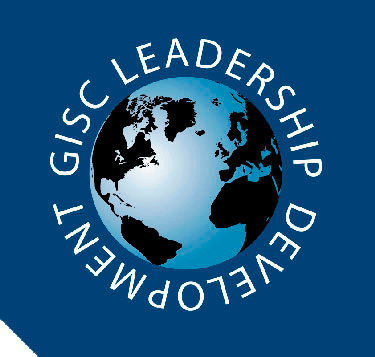A Reckoning
September 30, 2020
A Message To Our Cape Cod Training Program (CCTP) Graduates

Hello CCTP graduates,
The world has changed so much since we last connected with you via this seasonal newsletter. I hope this letter finds you managing whatever challenges this time has presented for you, as best you can.
While CCTP class of 2018 was steeped in its first week in Wellfleet, the NY Attorney General and long-time champion of women’s rights, Eric Schneiderman, was accused of sexual abuse. The occurrence of this event during our time together stimulated painful, but ultimately productive conversations in the group, about what it is like to be a woman in a male dominated world. Women talked about our vulnerability as women, physically and emotionally, and insisted on being asked, not told, about our experiences. I was aware that since the #MeToo movement began in 2017, the women in my life were talking, talking, talking (we women tend to do that!) sharing our “me too” experiences. Every woman had a story to tell. However, when I asked the men in my life if they were talking to each other or asking the women in their lives questions about “me too,” I found that men were not talking or asking. I felt despair. How will things change for women if there is no reckoning from men? They did not endure sleepless nights at age 14, wondering how to manage the terror of getting on the subway the next day, in a skirt, (required school attire) after being groped in a crowded rush hour train the day before. #Me Too might raise men’s awareness in the moment, but then it can fade into the background. That is a privilege. And, so it is with racial violence and inequity for me, as a white woman. My white privilege means that when I found myself driving through a stop sign yesterday, late at night, only to see a State Police car parked on the corner, my worst worry was getting pulled over and getting a ticket. The killings of Breonna Taylor, George Floyd and Ahmaud Arbery, just to name a few of the victims of racial violence from these past few months, have stimulated a deeper personal and professional reckoning for me - I have not taken responsibility for maintaining my attention and commitment to racial inequities. I must be intentional and commit to ongoing action steps, personally and professionally.
After CCTP 2018, the faculty acknowledged amongst ourselves, that we weren’t doing an essential part of our job, that is, creating opportunities for participants to explore and address gender, cultural and racial biases. In teaching practitioners to use the Cape Cod Model, we must engage them in learning about their own cultural, gender and racial biases, as well as accounting for the differences in our clients, and their cultural/social and gender contexts. The Cape Cod Model is built on “seeing what is,” and using “the data” when we give feedback. It is also true that what I see and what you see will be different, depending on where we come from, our own gender, cultural and racial biases. Faculty has now made changes to the CCTP 2020/2021 design, to include attention to gender, social and racial sensitivity. It is our responsibility to act.
Jewish tradition teaches:
“You are not obliged to complete the work, but neither are you free to desist from it.”
I am excited to share that as an organization, GISC has moved into action in this area as well. This Fall, GISC is offering two new forums for confronting our own biases and racism from a Gestalt perspective. The Humility Project
co-led by Carol Brockmon and Marcy Crary, and Eyes Wide Open
co-led by Ann Carr and Roderick Allen. Please check the website and join us.
I would love to hear from you about how the increased attention to racial inequities has impacted or inspired you.
Warmly,
Sharona (on behalf of Carol, Nancy, Joe and Stuart)

Dear Friends, Thank you for your ongoing support of GISC and for being such a vital part of our global learning community. Together, we’ve continued to build on the transformative work that has defined GISC for decades. I’m excited to share some highlights of the past year and invite you to join us in shaping our next chapter. After more than 20 years in Wellfleet, we’ve embraced a new home in downtown Boston. Our new offices are located in a vibrant building dedicated to nonprofit advancement and social change, a perfect reflection of GISC’s mission to foster meaningful growth in the individuals and organizations we serve. While we will always cherish our Cape Cod roots, this move enhances our ability to connect with a broader community and expand our impact in new and exciting ways. GISC remains the place that brings diverse individuals together, in community, over time, for deep transformative learning. These shared experiences enable participants to multiply their impact for larger systems change. This year, our mission came to life with participants from 25 countries across all continents joining our online and in-person programs—an increase from prior years and a powerful testament to the global relevance of our work. In November, our faculty gathered for a three-day retreat, which deepened our sense of connection and reaffirmed GISC’s dedication to diversity, equity, inclusion, and belonging. This retreat will allow us to better foster a sense of belonging in our programs, continue to develop our theory, and align our Gestalt approach with the principles of inclusivity and shared growth. We’ve expanded our program offerings to include new open-enrollment and customized trainings for organizations, addressing critical topics such as psychological safety and inclusive leadership. And we continue to develop new programs to meet the needs of today’s leaders and professionals. In 2024, we launched a free monthly series for psychotherapists, Conversations with Clinicians: Life and Practice through a Gestalt Lens, enriching our commitment to the therapeutic community. Board member Shanaaz Majiet from Cape Town, South Africa, captured the heart of GISC’s work when she shared, “I believe our GISC mission has new relevance in an era of relationships for a better world.” Indeed, the relationships we cultivate and the communities we build are at the heart of everything we do—and it is your passion, support, and dedication that make it all possible.

When most coaches and clients think about coaching work, they see it as void of racism, sexism, sexual orientation, ableism, bias and intersectionality to name only a few experiences. They may also ignore the presence of these lifelong experiences in a coachee or themselves. As John Leary-Joyce the author of The Fertile Void: Gestalt Coaching at Work, states,

Dear Friends, Thank you for your ongoing support of GISC and for being such a vital part of who we are as a global learning community. This year, I have some important and exciting news to share. For many months, the GISC Board of Directors and I have worked together to develop a strategic vision to take GISC into the future. Our aim is for GISC to be the place that brings diverse individuals together, in community, online and in accessible in-person environments, for meaningful, transformative learning, so they can multiply their impact for larger systems change. We know this is achieved through relevant programming, experiences that are deep and build mastery over time, a focus on diversity, inclusion, and belonging – and by continuing to evolve as an organization. To this end, last month, the board made the strategic decision to put the Nevis Meetinghouse in Wellfleet up for sale and move our center of operations to Boston, Massachusetts. After the trials of Covid and the societal shifts we’ve seen since, it’s become clear that our greatest opportunities lie off-Cape, online, and in new places in the US and abroad. Making this decision is the best way we know to honor the legacy of our founders, Edwin and Sonia Nevis, and expand our important mission. While the building in Wellfleet has been a cherished physical home to many of us, it’s been the profound insights and lifelong relationships created there and elsewhere that are the most valuable treasure we share. Together, over many years, we’ve formed and re-formed community to hold our greatest hopes and aspirations as humans and professionals. “The Center” is indeed a community – it is you, our participants, members, supporters, faculty, and friends – not a physical space. This change will allow for greater accessibility and open up new opportunities for collaboration and partnerships in education, healthcare, and the helping professions. It will better enable thought leadership and our commitment to equity, diversity, and inclusion, expanding our impact in the world. While we understand that this news may bring sadness to some, we hope you will also join in our excitement for new ways of becoming all we can be – with all the creativity and liveliness that change can bring – while holding onto the essence of who we are and what makes GISC special. Please be a part of making this new vision a reality with your continued support and give generously to GISC this year. Your gift of $1,000 will place you in our Founders Circle, and every unrestricted gift of $125 or more includes a GISC membership. Our members are entitled to special perks and program discounts and will receive an invitation to our Virtual Town Hall to learn more and share thoughts on our vision for GISC. We also welcome gifts directed to our Scholarship Fund, Clinical Initiatives, DEIB work, Faculty Development – or your own area of interest.

Lately, as I sit with clients, I have found myself exploring the experience of not knowing. It's notable because I have spent so much of my professional life wanting to learn and grow ...which necessarily involves knowing things. I assume we all do that. But as I said, I have been exploring "not knowing". I find I am enjoying "not knowing". Perhaps it's really the experience of not having to know. I think this is making me a better practitioner...therapist, coach, consultant. It provides me a lot of freedom. However, the road to "not knowing" has not been comfortable for me. It's too close to the experience of feeling "stupid". Perhaps turning 66 has helped. It brought to mind picture of the Old Lady and the Young Lady:

Dear Friends, We at GISC are grateful for you, our donors, members, and participants, for playing such a vital role in bringing GISC’s powerful Gestalt approach to so many, “transforming the way we live and work in the world.” Our community is the heart and soul of this organization, and we thank you. GISC is better poised than ever to reach more people and to make the kind of impact so needed in the world today. We’re taking our Gestalt Leadership Development training into more organizations and creating a clinical initiative to develop and promote new offerings for psychotherapists. We’re working to become more accessible, experimenting with delivery at central in-city locations and by optimizing our online presence. And we’re actively educating ourselves as a community on issues of diversity, equity, and inclusion, to grow as an organization and be a place where everyone called to this work feels they belong. The brilliance and legacy of GISC founders Sonia March Nevis and Edwin Nevis equipped us well to bring our own solutions to the problems individuals and organizations face today, and still, we must continue to develop ourselves and prepare new generations of coaches, leaders, and practitioners. As luminaries in the Gestalt world age, retire, or, sadly, pass away, we’re reminded of the imperative to carry this legacy forward, person to person. As 2022 draws to a close, we’d like to ask for your continued help in bringing GISC’s important work into the world. Your gift will support these and other initiatives: Faculty Development – to support our faculty community and offer advanced training. Equity, Diversity, Inclusion, and Belonging – to move GISC and those we train to a place of awareness, equity, and competence for living in a diverse and multicultural world. Scholarship Fund – so we can continue to provide scholarship assistance to those who need it. Clinical Initiative – to develop new offerings for mental health professionals. Virtual Delivery – to bring our rich GISC experiences to wider audiences online. Please give today to support our work and expand our global community. You can donate online by clicking the button below or by check via mail, directing your gift to your favorite initiative or to the general fund. Again, this year, we invite you to join our Founders’ Circle with your gift of $1,000 or more. All contributions of $125 or more will entitle you to a free GISC membership for 2023.

If the past year has demanded anything of us, it has been to draw on our inner resources – and one another – to reimagine the ways we live and work in the world. To achieve things we don’t yet know are possible. “This might not work,” one of my favorite lines by creativity expert Seth Godin, speaks to the way every important undertaking is a leap of faith, as we will only discover what works by trying new things. I am so proud of GISC’s faculty, board, staff, and participants, as we have worked to create something incredibly important and worthwhile this year – reaching outside of comfort zones to offer programs in new ways, bringing our experiential programs online, beginning to explore biases we didn’t know we held, and so much more – all while contending personally and professionally with a global pandemic. Many of us – leaders, therapists, coaches, consultants – have moved through our own fears and resistances and blind-spots to look at what is, what else might be possible, and to help bring others along their own paths of learning. It has been a joy to see program participants join strangers from around the world on two-dimensional screens, yet somehow forge intimacies and embody learning none of us were sure was possible. They have walked away from signature programs we thought could only be delivered in person saying things like: “It's been life changing” “What stands out for me in this program is the good-heartedness.” “I experience the organisation as one that lives and promotes its values, which seems rare these days!” “…Each program I attend attracts people willing to engage in the material, share in a meaningful and intimate way, and show up from around the world. It makes my world a better place.” GISC, like the individuals in our community, is doing some reimagining of its own. How might we stand on the fertile ground our founders laid and best equip today’s generation of learners to bring more meaning and competence to their own lives and the lives of those they touch? How can we be more inclusive and just? And, we have developed some new initiatives to address these questions. Please support GISC with your gift this year and be a part of reimagining our future, expanding upon all that we’ve learned to become something more. Your gift will support: New Programming to enhance skills and ways of being that are relevant to today’s leaders and practitioners Diversity Equity Inclusion & Belonging – so that GISC is a place where everyone feels they belong and are supported to live, work, and promote change in our multicultural society Virtual Initiative – expanding accessibility and our ability to bring GISC’s brand of powerful, safe, highly experiential programming online Scholarship Fund – supporting nonprofit leaders, clinical practitioners, and participants from underrepresented communities Faculty Development – To foster thought-leadership and equip our next generation of faculty to bring the best of Gestalt theory and practice into the future





